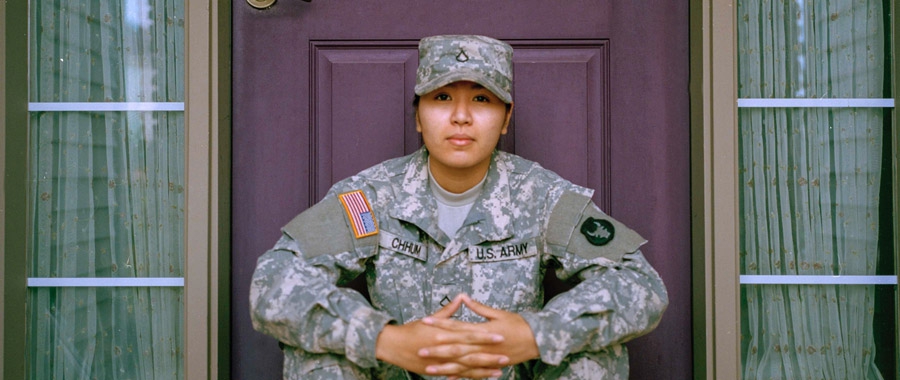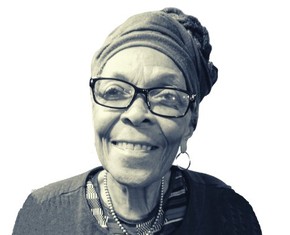The views expressed in our content reflect individual perspectives and do not represent the authoritative views of the Baha'i Faith.
My father fought in World War II – often called a “good war,” because it battled fascism and tyranny. But when he first heard that term, he scoffed: “No ‘good war’ exists,” he said. “In war, everyone loses.”
In the war I went to, the United States of America’s ill-fated excursion in Vietnam, I saw him proven right time and time again. War, I learned as a conscientious objector on the battlefield, can never create – it can only destroy:
… war is destruction while universal peace is construction; war is death while peace is life; war is rapacity and bloodthirstiness while peace is beneficence and humaneness; war is an appurtenance of the world of nature while peace is of the foundation of the religion of God; war is darkness upon darkness while peace is heavenly light; war is the destroyer of the edifice of mankind while peace is the everlasting life of the world of humanity; war is like a devouring wolf while peace is like the angels of heaven; war is the struggle for existence while peace is mutual aid and co-operation among the peoples of the world and the cause of the good-pleasure of the True One in the heavenly realm. – Abdu’l-Baha, Selections from the Writings of Abdu’l-Baha
So now that some people have begun beating the drums of war once again in my country, let’s explore the Baha’i teachings on armed military conflict and see what they have to say about the advisability of waging war as a way to resolve disputes between nations.
The Baha’i Faith, well-known around the world for its opposition to war, did not reach that position through the deliberations of theologians, some committee of policymakers or even a general agreement among the Baha’is themselves. Instead, and much more importantly, the strong central Baha’i teachings on peace came directly from the Faith’s founder, Baha’u’llah:
It is incumbent upon all the peoples of the world to reconcile their differences, and, with perfect unity and peace, abide beneath the shadow of the Tree of His care and loving-kindness. – Baha’u’llah, Gleanings from the Writings of Baha’u’llah
The purpose underlying the revelation of every heavenly Book, nay, of every divinely-revealed verse, is to endue all men with righteousness and understanding, so that peace and tranquillity may be firmly established amongst them. – Ibid
O ye rulers of the earth! Wherefore have ye clouded the radiance of the Sun, and caused it to cease from shining? Hearken unto the counsel given you by the Pen of the Most High, that haply both ye and the poor may attain unto tranquillity and peace. We beseech God to assist the kings of the earth to establish peace on earth. – Ibid
Accordingly, Baha’is around the world ceaselessly devote their efforts to establishing a lasting global peace. In their local communities, Baha’is work for peace in their neighborhoods and nations. The Baha’i administration, elected democratically around the world, advocates for peace in all of its interactions with local, national and international governing bodies. The Universal House of Justice, the global governing body of the world’s Baha’is, has called on all humanity to make the choice to permanently end war:
The Great Peace towards which people of good will throughout the centuries have inclined their hearts, of which seers and poets for countless generations have expressed their vision, and for which from age to age the sacred scriptures of mankind have constantly held the promise, is now at long last within the reach of the nations. For the first time in history it is possible for everyone to view the entire planet, with all its myriad diversified peoples, in one perspective. World peace is not only possible but inevitable. It is the next stage in the evolution of this planet – in the words of one great thinker, “the planetization of mankind”.
Whether peace is to be reached only after unimaginable horrors precipitated by humanity’s stubborn clinging to old patterns of behaviour, or is to be embraced now by an act of consultative will, is the choice before all who inhabit the earth. – The Universal House of Justice, The Promise of World Peace
But let’s clear up a misconception: that the peace-loving Baha’is are pure pacifists, opposed to every conceivable form of war no matter what the future circumstance. That’s not true – the Baha’i teachings do allow one, and only one, exception to the Faith’s general antiwar stance. Baha’u’llah wrote that peace between the world’s countries:
… is the greatest means for insuring the tranquillity of the nations. It is incumbent upon the Sovereigns of the world – may God assist them – unitedly to hold fast unto this Peace, which is the chief instrument for the protection of all mankind. It is Our hope that they will arise to achieve what will be conducive to the well-being of man. It is their duty to convene an all-inclusive assembly, which either they themselves or their ministers will attend, and to enforce whatever measures are required to establish unity and concord amongst men. They must put away the weapons of war, and turn to the instruments of universal reconstruction. Should one king rise up against another, all the other kings must arise to deter him. Arms and armaments will, then, be no more needed beyond that which is necessary to insure the internal security of their respective countries. If they attain unto this all-surpassing blessing, the people of each nation will pursue, with tranquillity and contentment, their own occupations, and the groanings and lamentations of most men would be silenced. – Baha’u’llah, Epistle to the Son of the Wolf
War, the Baha’i teachings say, could only become potentially justifiable if one of the world’s countries aggressively attacked another – and only after the lawful establishment of a global parliament, when the rest of those nations had developed sufficient bonds of unity to jointly oppose a country’s military invasion and aggression.
In that future condition of human governance, after humanity has fulfilled its spiritual and political destiny by establishing a unified supreme governing body for the entire Earth, then and only then could the international community justifiably do whatever became necessary to protect the world’s unity and peace:
When the Supreme Tribunal gives a ruling on any international question, either unanimously or by majority rule, there will no longer be any pretext for the plaintiff or ground of objection for the defendant. In case any of the governments or nations, in the execution of the irrefutable decision of the Supreme Tribunal, be negligent or dilatory, the rest of the nations will rise up against it, because all the governments and nations of the world are the supporters of this Supreme Tribunal. – Abdu’l-Baha, Selections from the Writings of Abdu’l-Baha
A close reading of this and other Baha’i writings on the subject, however, reveals that Baha’u’llah and his successor Abdu’l-Baha never actually used the term “war” to describe how the “rest of the nations” might conceivably “rise up” against an aggressor. In the more advanced global society the Baha’i teachings describe, and in an increasingly interdependent one, simple economic sanctions could potentially have an even greater and more effective impact than military action. Since no country on Earth is self-sufficient any longer – every nation now needs to import some of its food, energy, goods and technology – a blockade of the aggressor nation’s borders, or even a globally enforceable trade embargo, could suffice to halt its aggression.
So when the drums of yet another potential war grow louder, the Baha’i teachings say that humanity has a crucial choice to make: world unity or more death and destruction:
There is no greater or more woeful ordeal in the world of humanity today than impending war. Therefore, international peace is a crucial necessity. An arbitral court of justice shall be established by which international disputes are to be settled. Through this means all possibility of discord and war between the nations will be obviated. – Abdu’l-Baha, The Promulgation of Universal Peace
















Comments
Sign in or create an account
Continue with Googleor